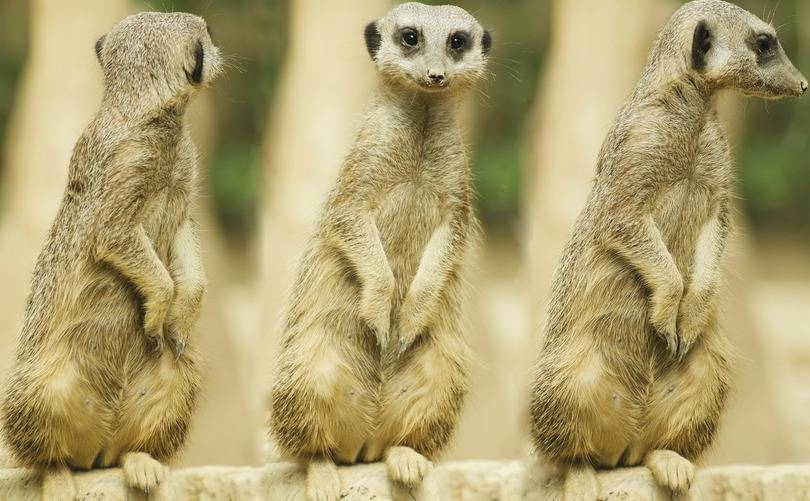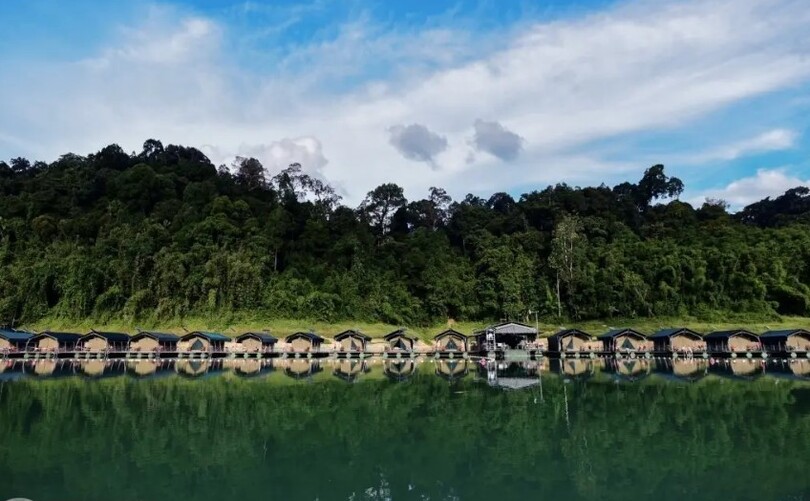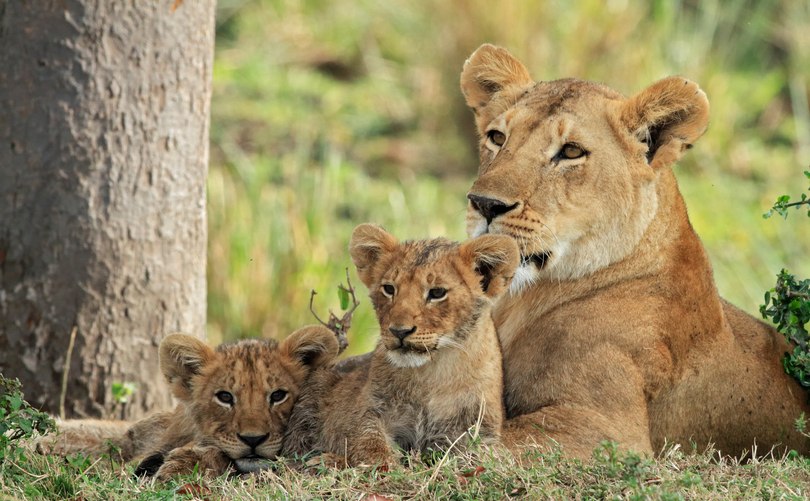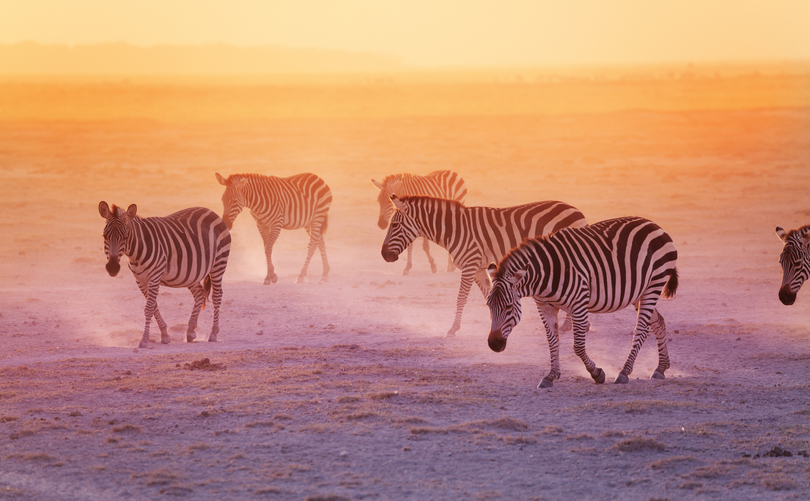
Climb Kilimanjaro - Mangaru Route (Bronze)
Kilimanjaro
The Marangu Route:
Often considered the easiest and one of the most popular routes to the summit, the Marangu route is used by almost 40% of all climbers and uses comfortable mountain huts with solar power lighting.
It is suitable for those adventurers who are not particularly experienced in the mountains, therefore classified as a moderate trek rather than a climb. Although the trail can be a little crowded at certain times of the year, the views are beautiful and each day of walking progresses through a different climate zone, adding considerably to the interest of the trek. The real highlight is the walk from Gillman’s point along the crater rim to Uhuru Peak, passing close to the spectacular glaciers and ice cliffs that occupy most of the summit area. The views as the sun rises behind M awenzi on a clear morning are absolutely magnificent - The Rift Valley, Mt. Meru and the Masai Steppes stand out from the endless plains, almost three vertical miles below.
Highlights
- Easiest and one of the most popular routes to the summit.
- Comfortable mountain huts with solar power lighting.
- Moderate trek.
- Private tour with mountain guide and porters.
- Day 1 - Arrival and briefing
- Day 2 - Trekking from Marangu Gate to Mandara Hut
- Day 3 - Trekking from,Mandara Hut to Horombo Hut
- Day 4 - Trekking from Horombo Hut to Kibo Hut
- Day 5 - Trekking to Uhuru Peak and descent to Horombo Hut (Summit Day)
- Day 6 - Descent from Horombo Hut to Marangu Gate
- Day 7 - Departure
- Additional Information
Collection from Kilimanjaro airport, and transfer to Springlands Hotel located in Moshi Town close to the foothills of Mount Kilimanjaro. Here you will have a climb briefing and time to prepare and overnight.
Overnight at Springlands Hotel on a bed and breakfast basis
The National Park Gate (1,830 m.) lies at the edge of Marangu, which is an attractive village with many small coffee and banana plantations. After completing the entrance formalities, the groups will climb up through an attractive and unspoilt forest to reach the clearing containing Mandara Hut (2,700 m.), a group of comfortable 'A' frame wooden huts. The largest cabin has a downstairs dining area and an upstairs dormitory and mattresses. Smaller huts sleep eight persons. The total capacity is sixty persons. Water is piped onto site from a spring above and there are flush toilets behind the main cabin. The volcanic remains of Maundi Crater are nearby and make a good afternoon excursion. An alternative is to rest and enjoy the beautiful forest. There is rich birdlife at the huts and monkeys are often seen as well. (3-5 hours walking).
Overnight on the mountain on a full board basis
Meals Included: Full BoardThe first part of the walk is a steep ascent through the forest, but the path soon opens out into grassy moorland and in clear weather, there are good views of Kibo and Mawenzi peaks. The group will climb steadily through the moorland zone, containing giant heathers and occasional stands of groundsel, to eventually reach the hut complex at Horombo (3,720 m.). The buildings here are similar to Mandara Hut, but total capacity is one hundred and twenty persons. Water is piped from the stream behind the huts. There are platform toilets south east of the main hut, about eighty metres down the slope and flush toilets have been built within the complex of small huts. Sunrises and sunsets here are often spectacular and the site is close to the glaciated dome of Kibo. There is a real sense of being above the clouds here. (4-6 hours walking).
Overnight on the mountain on a full board basis.
Meals Included: Full BoardThe group will climb very gradually towards the lunar desert of the Saddle between Mawenzi and Kibo. The terrain changes to scree and there is a palpable sense of high altitude wilderness. We usually reach Kibo Hut (4,700 m.) at the bottom of the crater wall by midday. Kibo is a stone-built block house with a small dining area and a number of dormitory rooms leading off a main corridor. There are bunk beds and mattresses for about sixty people. There is no water here so one has to bring an ample supply from the 'last water' supply above Horombo Hut. Platform toilets are behind the hut. The remainder of the day is spent resting and eating in preparation for the final climb before a very early night! (4-5 hours walking).
Overnight on the mountain on a full board basis.
Meals Included: Full BoardWe will start our ascent by torchlight at about 1am, aiming to be up at Gillman’s Point by sunrise. The initial climb is steep over loose volcanic scree, but there are some well-graded zig-zags and a slow but steady pace will have us up to Gillman’s (5,685 m.) in about five or six hours. The group will rest there and spend some time taking in the sunrise. For those who are still feeling strong can make the three hour round trip from here along the crater rim to Uhuru Peak (5,896 m.), passing close to the spectacular glaciers that still occupy most of the summit area. The descent is surprisingly fast and we return to Horombo for the night. (11-15 hours walking).
Overnight on the mountain on a full board basis
Meals Included: Full BoardWe retrace our steps with a pleasant moorland walk to Mandara and then a lovely forest walk to the National Park gates. The greenness and lushness of the forest is quite a stunning contrast to the summit day and it really makes you realise how varied the scenery on Kilimanjaro really is. (5-6 hours walking). When you finish the climb, there will be a vehicle waiting to meet you and transfer you back to Springlands Hotel for overnight.
Overnight at Springlands Hotel on a bed and breakfast basis
Meals Included: Full BoardAfter breakfast you are transferred to Kilimanjaro airport for your departure flight.
Note: Hotel check-out is at 11:00 AM
Meals Included: Bed and Breakfast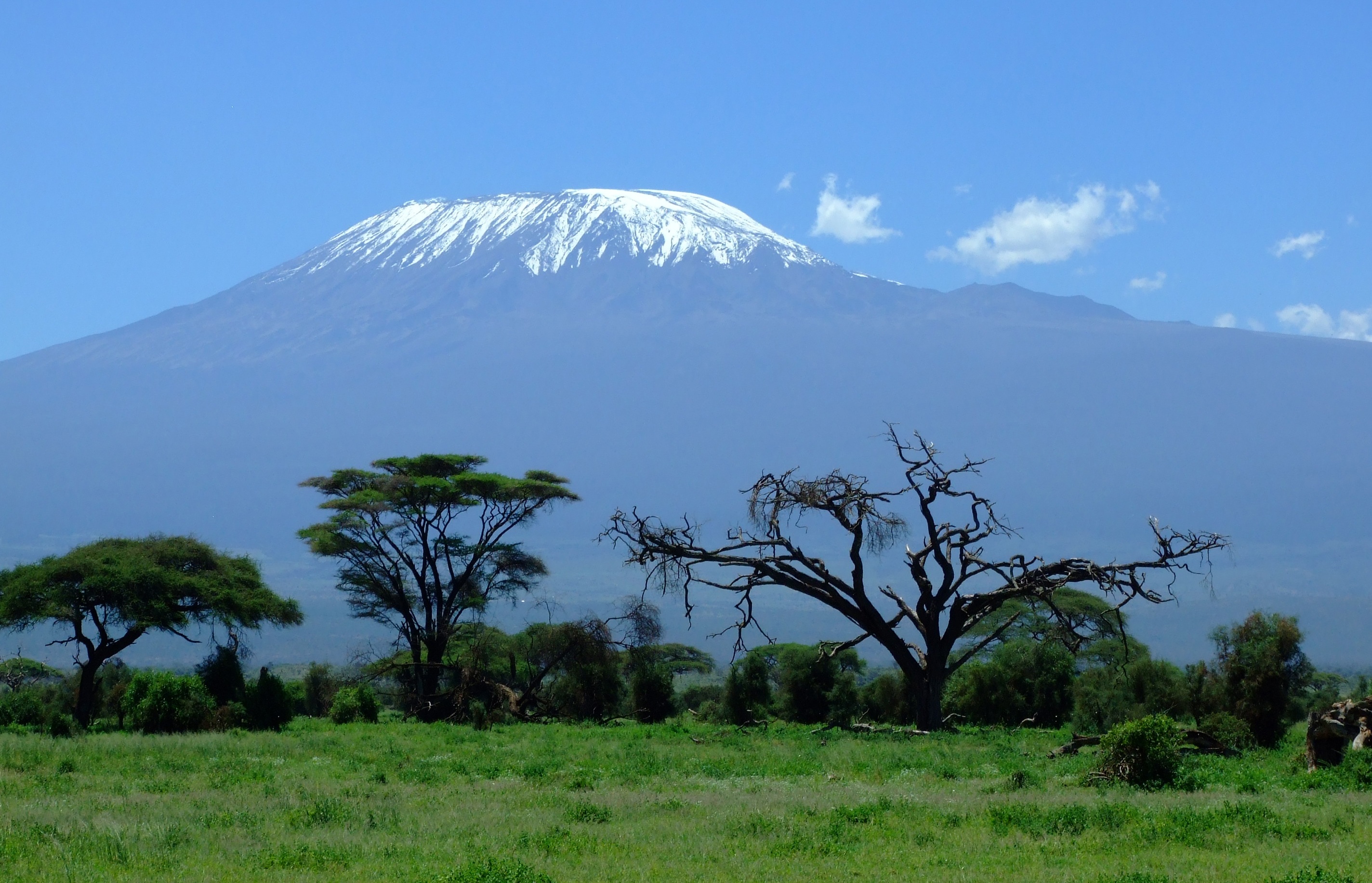
Tour starts at Kilimanjaro Airport and ends at Kilimanjaro Airport (depart after breakfast on day of departure).
Tour operates daily on a private basis.
7 days / 6 nights
Please note:-
An extra Acclimatisation Night can be added between Day 3 & Day 4 (approximately £260pp):-
After having breakfast, you will start acclimatization hike towards Kibo Camp and go back. After lunch, you will have an opportunity to rest and take some photos, having Kibo and Mawenzi volcanoes as a spectacular background.
Acclimatization hike
Elevations: Horombo Camp (3720 m) – Set point (3920 m)
Trekking distance: 2 km
Duration of trekking: 1-2 hours
TOUR RATE INCLUDES THE FOLLOWING:
• Meet and greet at Kilimanjaro International Airport.
• Mountain guide and porters.
• Transfers as specified.
• All pre and post climb accommodation as mentioned.
• All accommodation and meals* on the mountain.
• All park fees, hut fees and rescue fees**.
• Government taxes.
THE CLASSIC BRONZE RATE DOES NOT INCLUDE THE FOLLOWING:
• International flights.
• Visa fee.
• Airport tax (pay direct).
• Driver guide, mountain guide and porters gratuities (suggested approximately USD $225pp).
• Climbing gear - if required can be hired locallly.
• Drinks, dining room tips, porterage, personal travel and baggage insurance.
• Telephone bill, laundry and any items of a personal nature.
EQUIPMENT NEEDED FOR THE CLIMB
KIT LIST:
• Small backpack (20 – 40 liters) for your daily necessities;
• Large duffel bag for your belongings, which will be carried by a porter (80 – 120 liters);
• Sleeping bag (designed for up to − 15°C);
• Rain poncho, a water-proof covering for your backpack;
• Hiking boots with a water-repellent layer and good protector;
• Gym shoes for the first days of the climb and to change at the camp;
• Hiking pants for the first days of the climb (2 pairs);
• Waterproof pants;
• Warm ski pants (designed for −15°C);
• T-shirts, long sleeve shirts (4–5 pieces);
• Soft-shell or fleece jacket;
• Windproof jacket;
• Insulated jacket for -15°C is an absolute necessity for the final ascent to the summit;
• Thermal underwear for active sports (preferably 2 pairs);
• Light trekking gloves;
• Mittens/gloves designed for −15°C for the final ascent to the summit;
• Hiking socks (4 – 5 pairs);
• Gaiters for protection against dust/snow;
• Cap/panama hat/hat to protect your face and neck against the equatorial sun;
• Fleece hat;
• Balaclava for wind protection during the final summit ascent;
• Alpine sunglasses or goggles (don't take cheap Chinese sunglasses); • Headlamp + extra batteries;
• Trekking poles;
• Water flasks (2 liters in total); the flask may be substituted by a water bladder instal led in your backpack;
• SPF 40-50+ sunblock;
• Lip balm;
• Towel, soap, toothpaste, toothbrush;
• Personal medication in case of a chronic disease;
Please note:-
We do not offer a shared option for this climb. Private basis climb programmes use shared Alpine Huts and it is likley that there will be other climbers on the same itinerary throughout the climb. On private basis, you have your own mountain guide and porters. Alll transfers are on a shared basis.
Suggested tip amount is a recommendation only of the amount each climber should budget to pay the climb staff. Actual tips are at the climbers’ discretion.
Single Supplement on this climb applies only to the nights at the base hotel. Alpine huts on the mountain feature dormitory type accommodation and single occupancy is not possible.
Extra nights can be added at the Springllands Hotel if required (at an extra charge).
This itinerary is not suitable for children under 12 years old. There is no discount for children.
The itinerary may need to be re-routed or accommodated in similar lodges in case of non-availability. Prices for domestic flights, airport taxes or park fees may be changed without prior notice.
Passengers should bring only soft sided bags on safaris. Baggage on internal flights is strictly limited to 15kgs per person (including hand luggage). Any excess baggage will be charged by the airline at check-in.
All the passengers must have Identification Card/Passport with them for internal flights.
Passengers arriving to Tanzania may be asked to present a valid Yellow Fever Vaccination Certificate
*Meals on the mountain are prepared for high carbohydrate intake to facilitate climbing. They are not hotel standard meals and will be basic. Special diets can be catered to with advance notice.
**Rescue fee covers evacuation from the mountain to the park gate only. It does not cover any medical treatment at all, or transportation to the local hospital. We recommend that travellers purchase travel insurance with medical and evacuation cover.
Other climbing itineraries are available on request.






